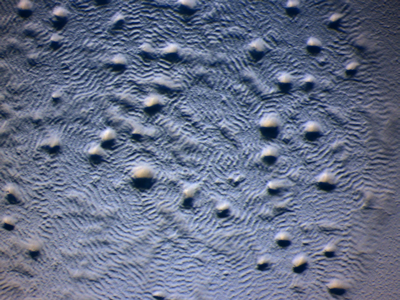Researchers Awarded Grant to Develop, Implement Strategies for New Antibiotics
Biologist Anthony Garza, Chemist Yan-Yeung Luk will 'clone' organic compounds from unculturable bacteria

Researchers in the College of Arts and Sciences have been awarded a major grant to develop and implement strategies for the discovery of new antibiotics.
Anthony Garza and Yan-Yeung Luk, associate professors of biology and chemistry, respectively, are recipients of a three-year, $375,000 grant award from the National Institute of the General Medical Sciences (NIGMS). The award is a federal response to the urgent need for new classes of antibiotics, as infectious bacteria become increasingly resistant to existing antibiotics.
NIGMS is one of the National Institutes of Health, which, in turn, is a component of the U.S. Department of Health and Human Services.
“Over the past 30 years, pathogenic bacteria have become increasingly resistant to our current supply of antibiotics, leading some researchers to speculate that we will soon enter a ‘post-antibiotic era,’ in which many infections will be untreatable,” Garza says. “Despite the urgent need for new classes of antibiotics, few have been developed in recent years.”
His and Luk’s work involves organic compounds called polyketides (PKs) and non-ribosomal peptides (NRPs). Both are found in nature, but are difficult to alter and reproduce in large quantities.
Known for their ring-like shape, PKs are produced naturally by bacteria, fungi, plants and marine animals. They are used to cure infection, prevent cancer, promote heart strength and lower cholesterol.
NRPs are also produced by fungi and plants. Chemically similar to proteins, they are often biosynthesized to look like PKs. Hence, NRPs are vital to the production of antibacterial, antifungal, antiviral, immunosuppressant and anticancer drugs.
“Many of the antibiotics that we use today are bacterial-derived PKs or NRPs,” Garza says. “It’s likely that many more have yet to be discovered, since only a small fraction [of PKs and NRPs] that bacteria are predicted to make, based on their genome sequences, have been isolated and characterized.”
Part of the reason PKs and NRPs are so elusive is that most of the bacteria used to make them are difficult to culture in a laboratory setting.
Garza and Luk think cloning may be the answer. After identifying PKs and NRPs that are naturally produced in unculturable bacteria, they plan to reproduce PK and NRP gene clusters from the metagenomic DNA—genetic material recovered from environmental samples—and then express them in a culturable host organism.
“This will enable new PKs and NRPs to be identified and tested for antibiotic properties,” Luk says. “A better understanding of PK and NRP gene regulation will aid in the selection and engineering of a heterologous [i.e., different] host, since the compatibility of the host regulatory machinery is crucial for the heterologous expression of these gene clusters.”

Both scientists will test their hypothesis on Myxococcus xanthus, a model organism for studying bacteria social behaviors, as well as a major producer of PKs and NRPs.
Their ultimate goal is to describe two potential strategies for the heterologous expression of PK and NRP gene clusters.
“Expressing a gene in a different specie or cell type from which it originates may change the way we treat patients with infectious diseases,” Garza says. “Time is running out, so we need to move fast.”
According to the Centers for Disease Control and Prevention, more than 2 million Americans annually become infected with bacteria that are resistant to antibiotics. At least 23,000 of them die as a result of these infections.
Featured
Anthony Garza Professor Emeritus
Yan-Yeung Luk Associate Professor
Media Contact
Rob Enslin
